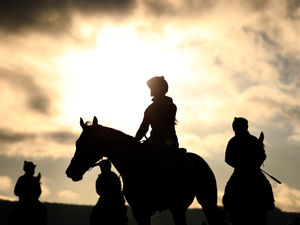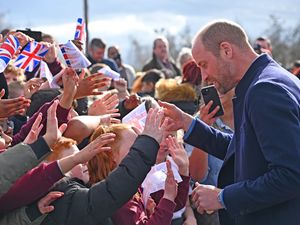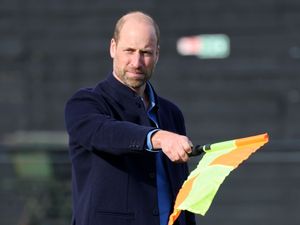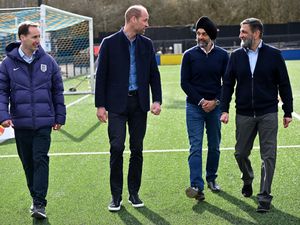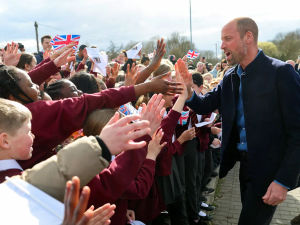Memorable Christmas messages from Kings and Queen as Charles delivers first festive broadcast
A hundred years ago, the BBC’s founding father John Reith approached King George V and asked him to record a short radio broadcast to the nation.
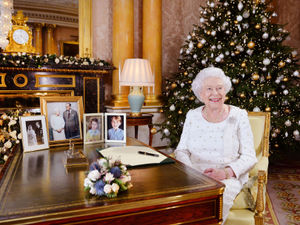
The King was unimpressed, considering radio to be a somewhat frivolous form of entertainment, and declined the invitation.
Ten years later, Reith asked him again, and he was still sceptical. But, strongly advised by Queen Mary and Prime Minister Ramsay Macdonald, he finally relented, and Christmas Day he took a seat in his study at Sandringham House to speak live to the nation via a microphone. His speech, written by Rudyard Kipling, was heard by 20 million. It was deemed so successful that he had no hesitation in doing another one the next year, beginning a tradition that would become as much part of the British Christmas as roast chestnuts and arguing about the washing up.
This year, Charles III will broadcast his first message as King, the fourth monarch to do so.
Of the 90 Christmas messages delivered over the past 90 years, 70 of them were made by Queen Elizabeth II. Sixteen were delivered by her father George VI, and four by her grandfather George V. Of course, one name is conspicuous by its absence. King Edward VIII never made a Christmas broadcast, having abdicated a few weeks before Christmas 1936, and the tradition may well have died with his father. But his younger brother George V revived the Christmas message the following year, and the custom has been kept every year since.
George VI, an altogether more reserved personality than either his father or elder brother, said in his first broadcast that he could not aspire to emulate his father’s oratory.
Nevertheless, he thanked the Empire for its support and loyalty during his first year on the throne and expressed his pledge to be worthy of his subjects’ support. Looking back on 1937, he noted the ‘shadows of enmity and of fear’ hanging over parts of the world, but hoped that the Christmas message of peace and goodwill would prevail and continue to be the keystone of people’s lives.
There was no Christmas broadcast in 1969, but the Queen did make an address to the nation in print. That year the Queen had taken part in the TV documentary Royal Family, giving a revealing insight to what life was like behind the closed doors of Buckingham Palace. It was also the year that Charles had his investiture as Prince of Wales, and the Queen concluded that the Royal Family had received enough TV exposure that year.
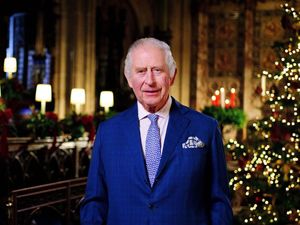
In the early years, the King’s speech would follow an hour-long programme featuring interviews with ‘ordinary people’ from across the Commonwealth, with the King talking about the bonds that brought these people together.
In his first speech, George V spoke appropriately enough about how new technology had the power to bring people together, something that would become a regular theme under the reign of Queen Elizabeth II. Her first speech, in 1952, was broadcast on television for the first time, although in audio only – it was not until 1957 that the public finally got the chance to see the Queen in her own home.
Colour broadcasting came along 10 years later, and from 1959 onwards the speeches were pre-recorded rather than broadcast live, allowing them to go out in different time zones at different times. It meant that Australia and New Zealand would now be able to receive the broadcasts on Christmas Day rather than Boxing Day, due to the differing time zones.
In her later years, the Queen’s broadcasts became less formal, and increasingly personal in nature, where she would talk about her Christian faith and how it related to the issues of the day.
There was considerable controversy in 1992 when the Queen spoke of her “annus horribilis”. That year saw marital break-ups for all three of her children and severe fire damage to her home at Windsor Castle. But to compound the pressure she was already facing at that time, she had to deal with the further blow of a transcript of the speech appearing in The Sun ahead of it being broadcast.
In 1997 broadcast was made by ITN for the first time, leading to speculation of a rift with the BBC following Martin Bashir’s controversial Panorama interview with Diana Princess of Wales. Palace officials denied such a dispute, and said it was simply a case of wanting to reflect the broader state of the modern media. From then on, the BBC and ITV alternated in filming and producing the Broadcast every two years; then in 2011 Sky also joined the rota for filming the Christmas Broadcast, with the 2012 message broadcast for the first time in 3D. It was also released as an online ‘podcast’ for the first time in 2006.
10 memorable Christmas messages:
1932
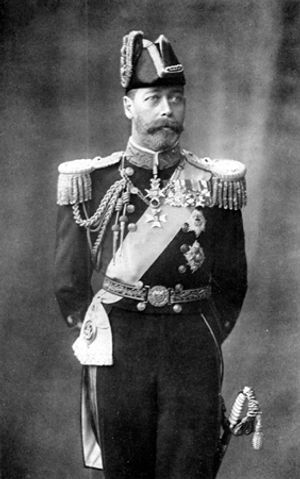
In the first Christmas broadcast, King George V spoke about how new technology was able to bring him closer to his subjects all over the world.
His speech, written by Rudyard Kipling, reflected the chaos that was beginning to unfold in Europe at that time, with uprisings and the rise of fascism, Nazism and Communism.
He spoke about the need for work towards peace and counselling listeners to aim for “prosperity without self-seeking.”
1939
Little more than three months since the outbreak of the Second World War, the King George VI spoke live from Sandringham House to offer a message of reassurance.
He described Christmas as a festival of peace and said it was a ‘tragedy of this time that there are powerful countries whose whole direction and policy are based on aggression and the suppression of all that we hold dear for mankind.’
But he added: “It is this that has stirred our peoples and given them a unity unknown in any previous war. We feel in our hearts that we are fighting against wickedness, and this conviction will give us strength from day to day to persevere until victory is assured.”
He praised the armed forces’ across the Empire for their efforts in the opening stages of the war, saying they faced a difficult task.
He referred to the nations and colonies of the Empire as a ‘Family of nations which is prepared to sacrifice everything that freedom of spirit may be saved to the world’ and referred to the assistance Britain has received from the rest of the Empire.
The King said the Empire and its allies were united by ‘the cause of Christian civilisation’, adding that ‘on no other basis can a true civilisation be built’.
Quoting the poet Minnie Louise Haskins, who wrote: ‘Give me a light that I may tread safely into the unknown’, he added: “Go out into the darkness, and put your hand into the Hand of God. That shall be to you better than light, and safer than a known way.”
1945
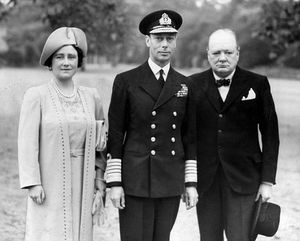
In the first Christmas message since the end of the Second World War, the King said that throughout the past six years he had been held up by a vision of world peace, which had finally become a reality.
“By gigantic efforts and sacrifices a great work has been done and a great evil has been cast from the earth,” he said.
“No peoples have done more to cast it out than you to whom I speak. This Christmas is a real homecoming for us all – a return to a world in which the homely friendly things of life can again be ours,” he added.
1951
George VI’s final Christmas message was the only broadcast that he pre-recorded, as he had recently undergone lung surgery. He spoke of his recovery and the goodwill messages he had received: “From my peoples in these islands and in the British Commonwealth and Empire – as well as from many other countries – this support and sympathy has reached me and I thank you now from my heart,” he said.
1952
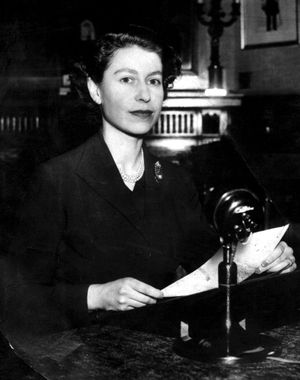
In her first Christmas message, the Queen spoke from the same desk and chair used by her father and grandfather before him..
She said she would strive to carry on their work to unite the people of the Empire and maintain their ideals,
She also thanked them for their loyalty and affection during the first months of her reign.
She described the British Commonwealth and Empire as an “immense union of nations” and likened it to a family which “can be a great power for good – a force which I believe can be of immeasurable benefit to all humanity”.
For the first time the message was also broadcast in sound only on television in the UK.
1957
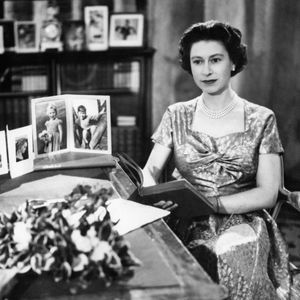
The first televised message was delivered by the Queen in 1957, 25 years after her grandfather first appeared on radio.
It was quite an intimate broadcast, where she spoke of her hopes that it would bring her closer to the people she served.
She said: “My own family often gather round to watch television, as they are at this moment, and that is how I imagine you now.
“I very much hope that this new medium will make my Christmas message more personal and direct. It’s inevitable that I should seem a rather remote figure to many of you, a successor to the kings and queens of history, someone whose face may be familiar in newspapers and films but who never really touches your personal lives. But now, at least for a few minutes, I welcome you to the peace of my own home.”
1967
The first to be broadcast in colour, the Queen reflected on the centenary of Canada’s Confederation, and her five-week tour of the country.
The same year she had knighted Sir Francis Chichester, the first man to sail solo around the world, in his boat Gipsy Moth IV.
She said: “Every once in a while an event occurs which seems to mark a milestone in history.
“For the Commonwealth, such an event was Canada’s centenary this year.
“Once a land of pioneers largely dependent on agriculture and raw materials, Canada has become also one of the leading industrial nations of the world.”
1980
A record 28 million people in the UK heard the 1980 Christmas broadcast, when the Queen spoke about her mother’s 80th birthday celebrations earlier in the year.
She praised her mother’s dedication to her duties, and likening her efforts to those who worked in the service of the public in difficult times.
“We see doctors, nurses and hospital staff caring for the sick; those in the churches and religious communities; in central and local Government; in the armed services; in the police and in the courts and prisons; in industry and commerce,” she said.
“In difficult times we may be tempted to find excuses for self-indulgence and to wash our hands of responsibility. Christmas stands for the opposite. The Wise Men and the Shepherds remind us that it is not enough simply to do our jobs; we need to go out and look for opportunities to help those less fortunate than ourselves, even if that service demands sacrifice.”
1992
The Queen reflected on her “annus horribilis”, her Ruby Jubilee year which was marred by marital break-ups of three of her children, the publication of Andrew Morton’s controversial book about Princess Diana, embarrassing phone conversations between Prince Charles and his lover Camilla Parker-Bowles, and a devastating fire which destroyed part of Windsor Castle.
The Queen spoke about the importance of personal fortitude, as embodied by members of the armed services undertaking difficult peacekeeping duties, and war hero and philanthropist Leonard Cheshire, who died earlier that year.
Controversially, The Sun obtained a transcript of the speech, and published extracts from it prior to broadcast.
1997
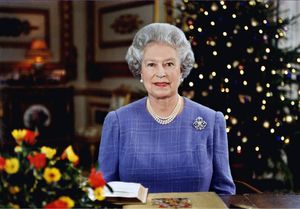
The Queen’s 40th TV message was produced for the first time by ITN, and also the first to be transmitted over the internet.
A rather bittersweet broadcast, it opened with contrasting pictures of Westminster Abbey, which the Queen reminded viewers had that year been the scene of the funeral of Diana, Princess of Wales, as well as the celebration of her own golden wedding anniversary.
Her Majesty spoke of the joy of her married life, and sadness at Diana’s passing. She reminded viewers of her trips to Canada, India, and Pakistan, and of the return of Hong Kong to China, before paying tribute to that year’s meeting of the Commonwealth’s political leaders.
She welcomed the imminent devolution in Scotland and Wales, but restated her belief in the benefits of being a United Kingdom.
2021
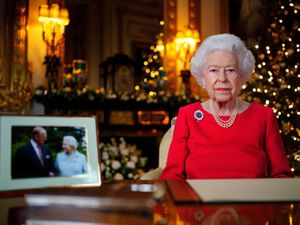
In her last Christmas address, the Queen spoke about the death of her husband, the Duke of Edinburgh, reminding viewers that while Christmas was a time of great happiness and good cheer for many, it could also be hard for those who lost loved ones.
“This year, especially, I understand why,” she said.
She thanked the public for the ‘warmth and affection’ shown in the tributes to the Duke, saying she had drawn great comfort”from them.
Speaking of her late husband, she said: “His sense of service, intellectual curiosity and capacity to squeeze fun out of any situation were all irrepressible. That mischievous, enquiring twinkle was as bright at the end as when I first set eyes on him.”
She also made reference to the hardships caused by the coronavirus pandemic.

